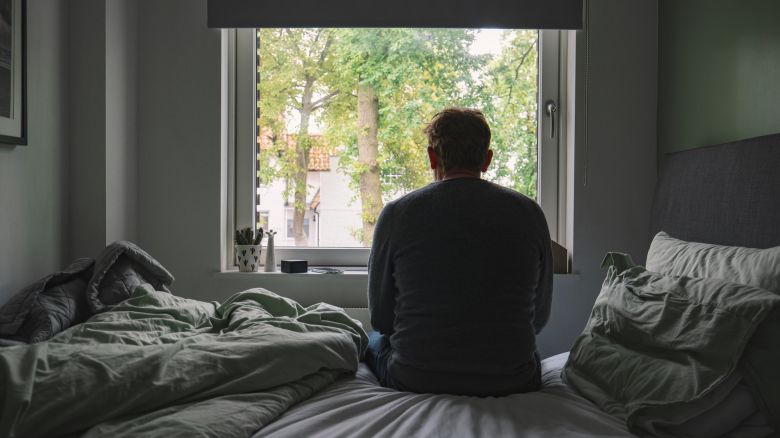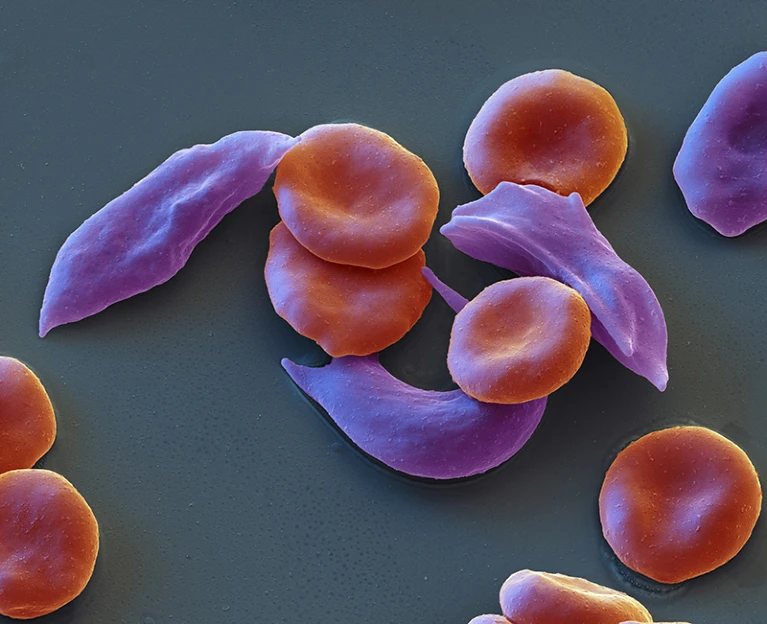WHO Makes Loneliness a Global Health Priority with New Commission on Social Connection
世界衛生組織新成立的社會連結委員會,將孤獨感列全球健康優先注意事項
Health
The World Health Organization is making loneliness a global health priority, it said Wednesday, launching a new Commission on Social Connection. For the next three years, the commission will focus on ways to address the “pressing health threat” of a global epidemic of loneliness, reviewing the latest science and designing strategies to help people deepen their social connections. It’s co-chaired by African Union Youth Envoy Chido Mpemba and US Surgeon General Dr. Vivek Murthy, who has written and spoken extensively about the risks of social isolation and has made the issue one of his top concerns while in office. Murthy said it is an “underappreciated” threat to health that has now become widespread. “For too long, loneliness has existed behind the shadows, unseen and underappreciated, driving mental and physical illness,” he said. “Now, we have an opportunity to change that.”
--from CNN
世界衛生組織週三表示,正在將孤獨列為全球健康的優先注意事項,並成立了社會聯繫這個新的委員會。 在接下來的三年裡,該委員會將重點研究如何解決全球孤獨症流行帶來的“緊迫的健康威脅”,根據最新的科學知識來設計幫助人們加深社會聯繫的策略。 該委員會由非洲聯盟青年特使 Chido Mpemba 和美國衛生局局長 Vivek Murthy 博士共同主持,後者撰寫並發表了大量關於社會孤立風險的文章,並將這一問題作為他在任期間最關心的問題之一。 Murthy表示,這是一種「未被充分認識」的健康威脅,而且現在已經變得普遍存在。 他說:「長久以來,孤獨感一直存在於陰影背後,不為人所知且未被充分認識,導致了精神和身體疾病。” “現在,我們有機會改變這一現狀。」
-- 摘錄翻譯自 CNN
Developing Multiple Health Conditions, including Cancer, Linked to Ultraprocessed Foods
多種健康狀況的發生,包括癌症,與超加工食品有關
Health
Eating higher amounts of ultraprocessed food raises the risk of being diagnosed with multimorbidity, or having multiple chronic conditions such as diabetes, heart disease and cancer, a new study found. What is particularly significant in this large study is that eating more ultra-processed foods, in particular animal products and sweetened beverages, was linked to an increased risk of developing cancer along with another disease such as a stroke or diabetes,” said Helen Croker, assistant director of research and policy at World Cancer Research Fund International, which funded the study, in a statement. However, the increased risk was modest, said Tom Sanders, professor emeritus of nutrition and dietetics at King’s College London, who was not involved in the study. “This paper reports a 9% increase in risk of multimorbidity to be associated with higher intake of ultraprocessed food,” Sanders said in a statement. “Food intake was measured by a questionnaire on one occasion a long time ago. This is important as dietary patterns have changed quite markedly in the past twenty five years with more food eaten outside the home and more ready prepared food being purchased,” Sanders said.
--from CNN
一項新的研究發現,食用更多的超加工食品會增加被診斷出患有多種共同疾病或患有糖尿病、心臟病和癌症等多種慢性疾病的風險。 這項大型研究特別重要的是,吃更多的超加工食品,特別是動物產品和加糖飲料,與患癌症以及中風或糖尿病等其他疾病的風險增加有關,」,由資助這項研究的世界癌症研究基金會國際研究和政策助理主任Helen Croker 在聲明中表示。 然而,King’s College London的營養與飲食學榮譽教授Tom Sanders表示,風險增加的幅度不大,但他沒有參與這項研究。 Sanders在一份聲明中表示:“這篇論文報告稱,多重疾病的風險增加 9% 與超加工食品攝入量增加有關。” 「過去對於食物攝取量是透過單次問卷調查測量得到。 這一點很重要,因為過去二十五年來,飲食模式發生了相當顯著的變化,更多的食物在外面吃,並且購買了更多現成的食物」,Sanders說。
--摘錄翻譯自CNN
These ‘Shy’ Sharks are under Threat, so Researchers are Using AI to Track Them
這些「害羞」的鯊魚正面臨威脅,因此研究人員正在使用人工智慧來追蹤它們
Culture
Off the coast of South Africa lies the Great African Sea Forest, home to one of the most biodiverse marine environments on the planet. Many types of life live within the waters including fish, octopus, sea slugs, large amounts of kelp, and sharks that are not found anywhere else in the world. Among those sharks is an elusive type known as the puffadder shyshark. These shysharks have golden and red brownish markings that mimic the puffadder snake found in South Africa. The small shark is non-confrontational – earning its shy nickname for the way it curves and uses its tail to covers its eyes, protecting vital organs and making it harder for predators to get them. Yet the sharks are considered endangered by the International Union for Conservation of Nature, with their population in decline. To help protect the shyshark, along with the other biodiversity along South Africa’s shores, marine scientists Mike Barron and Dylan Irion created Cape Research Diver and Development (Cape RADD), engaging biologists and citizen scientists to help with their work.
-- from CNN
南非海岸附近坐落著非洲大海洋森林,是地球上生物多樣性最豐富的海洋環境之一。 許多類型的生物都生活在這片水域中,包括魚類、章魚、海蛞蝓、大量海帶和鯊魚,這些都是世界其他地方所沒有的。 在這些鯊魚中,有一種難以捉摸的鯊魚,被稱為河豚鯊。 這些害羞鯊有金色和紅棕色的斑紋,模仿南非發現的河豚蛇。 這種小鯊魚不具有對抗性,因其彎曲的方式而得名害羞的綽號,它們會利用尾巴遮住眼睛,保護重要器官,使捕食者更難捕獲它們。 然而,國際自然保護聯盟認為鯊魚瀕臨滅絕,數量正在下降。 為了幫助保護害羞鯊以及南非海岸的其他生物多樣性,海洋科學家邁克·巴倫(Mike Barron) 和迪倫·伊里昂(Dylan Irion) 創建了海角研究潛水員與發展中心(Cape RADD),邀請生物學家和公民科學家來幫助他們的工作。
--摘錄翻譯自CNN
‘A Death Sentence’: British Doctor Flees Gaza but is Sent Back to War Zone
「死刑」:英國醫生逃離加薩但被送回戰區
Culture
A British doctor who escaped Gaza with his family has been sent back to the war zone after Egyptian officials told him his name wasn’t on the list of evacuees, according to a British Member of Parliament. Dr. Ahmed Sabra was in Gaza when Israel declared war on Hamas following the militant group’s October 7 attacks, said Geraint Davies, the local MP for Swansea West in Wales, where Sabra lives and works as a National Health Service consultant. Davies shared video and voice notes Sabra recorded as he made the perilous trip with his wife and children to the Rafah crossing, where they had hoped to cross into Egypt and find safety before returning home. But Davies said while Sabra’s family was allowed through, he was not on the approved list of foreign nationals. “This is a death sentence,” Sabra said in a video Davies shared with CNN. “I’m calling for the British government to do their duty and evacuate myself and other British nationals to safety to go back home,” he added.
--from CNN
據英國議會一名議員稱,一名與家人一起逃離Gaza的英國醫生,在埃及官員告訴他的名字不在撤離人員名單上後,已被送回戰區。 威爾斯斯旺西西區的當地議員傑蘭特·戴維斯(Geraint Davies) 說,當以色列在10 月7 日向該組織Hamas宣戰時並發動攻擊後,Ahmed Sabra博士當時正在Gaza。薩布拉在那裡生活和工作,擔任國家衛生服務顧問。 透過錄製的視訊和語音記錄,Davies分享了Sabra在與妻子和孩子前往拉法過境點的危險旅程,他們原本希望在那裡進入埃及並在回家之前找到安全。 但戴維斯表示,雖然Sabra的家人被允許通過,但他並不在批准的外國人名單上。 「這等同宣判死刑,」Sabra在Davies分享給美國有線電視新聞網的影片中說道。 他補充說:“我呼籲英國政府履行該盡的職責,將我自己和其他英國國民疏散到安全地帶,然後回家。”
--摘錄翻譯自CNN
ChatGPT Has Entered the Classroom: How LLMs could Transform Education ChatGPT
已進入教室:法學碩士如何改變教育
Sciences
Last month, educational psychologist Ronald Beghetto asked a group of graduate students and teaching professionals to discuss their work in an unusual way. As well as talking to each other, they conversed with a collection of creativity-focused chatbots that Beghetto had designed and that will soon be hosted on a platform run by his institute, Arizona State University (ASU). The bots are based on the same artificial-intelligence (AI) technology that powers the famous and conversationally fluent ChatGPT. Beghetto prompts the bots to take on various personas to encourage creativity — for example, by deliberately challenging someone’s assumptions. One student discussed various dissertation topics with the chatbots. Lecturers talked about how to design classes. The feedback was overwhelmingly positive. One participant said that they had previously tried to use ChatGPT to support learning but had not found it useful — unlike Beghetto’s chatbots. Another asked: “When are these things going to be available?” The bots helped participants to generate more possibilities than they would have considered otherwise.
--from Nature
上個月,教育心理學家Ronald Beghetto要求一群研究生和教學專業人員,以一種不尋常的方式討論他們的工作。 除了互相交談之外,他們還與 Beghetto 設計的一系列以創造力為中心的聊天機器人(chatbots)進行了交談,這些機器人很快就會在託管亞利桑那州立大學 (ASU) 研究所的運營的平台上。 這些機器人基於相同的人工智慧 (AI) 技術,該技術為著名且對話流暢的 ChatGPT 提供支援。 Beghetto 促使機器人扮演各種角色來鼓勵創造力——例如,故意挑戰某人的假設。 一名學生與聊天機器人討論了各種論文主題。 講師們談論如何設計課程。 反饋非常正面。 一位參與者表示,他們之前曾嘗試使用 ChatGPT 來支援學習,但沒有發現它是有用——這與 Beghetto 的聊天機器人不同。 另一位網友問道:“這些東西什麼時候能上市?” 這些機器人幫助參與者創造了比他們想像的更多的可能性。
--摘錄翻譯自Nature
UK First to Approve CRISPR Treatments for Diseases: What You Need to Know
英國率先批准 CRISPR 治療疾病:您需要了解什麼
Sciences
In a world first, the UK medicines regulator has approved a therapy that uses CRISPR gene editing as a treatment for diseases. The decision marks another high point for a biotechnology that has regularly been lauded as revolutionary in the decade since its discovery. The therapy, called Casgevy, will treat the blood conditions sickle-cell disease and beta-thalassaemia. Sickle-cell disease, also known as sickle-cell anaemia, can cause debilitating pain, and people with beta-thalassaemia can require regular blood transfusions. “This is a landmark approval which opens the door for further applications of CRISPR therapies in the future for the potential cure of many genetic diseases,” said Kay Davies, a geneticist at the University of Oxford, UK, in comments to the UK Science Media Centre. Nature explains the research behind the treatment and explores what’s next. What research led to the approval? The approval by the Medicines and Healthcare products Regulatory Agency (MHRA) follows promising results from clinical trials that tested the one-time treatment, which is administered by intravenous infusion and was developed by Vertex Pharmaceuticals in Boston, Massachusetts, and CRISPR Therapeutics in Zug, Switzerland.
--from Nature
英國藥品監管機構批准了一種使用 CRISPR 基因編輯當成治療疾病的療法,這在世界各地尚屬首次。 這項決定標誌著生物技術的另一個高峰,該技術自發現以來十年來一直被譽為革命性的。 這種療法稱為Casgevy,將治療鐮狀細胞疾病和β地中海貧血等血液疾病。 鐮狀細胞疾病,也稱為鐮狀細胞性貧血,可引起造成衰弱性疼痛,β-地中海貧血患者可能需要定期輸血。 英國牛津大學遺傳學家 Kay Davies ,在向英國科學媒體發表評論時表示:「這是一項具有里程碑意義的批准,為未來進一步應用 CRISPR 療法在許多可能透過此方法治癒遺傳疾病打開了大門。」 《自然》雜誌解釋了治療背後的研究,並探討了下一步的發展。 哪些研究導致了批准? 藥品和保健產品監管局 (MHRA) 因為一個成功的臨床試驗,批准此次基因治療。該臨床試驗透過單次靜脈輸注進行給藥,由馬薩諸塞州波士頓的 Vertex Pharmaceuticals 和瑞士楚格的 CRISPR Therapeutics共同開發。
--摘錄翻譯自Nature
